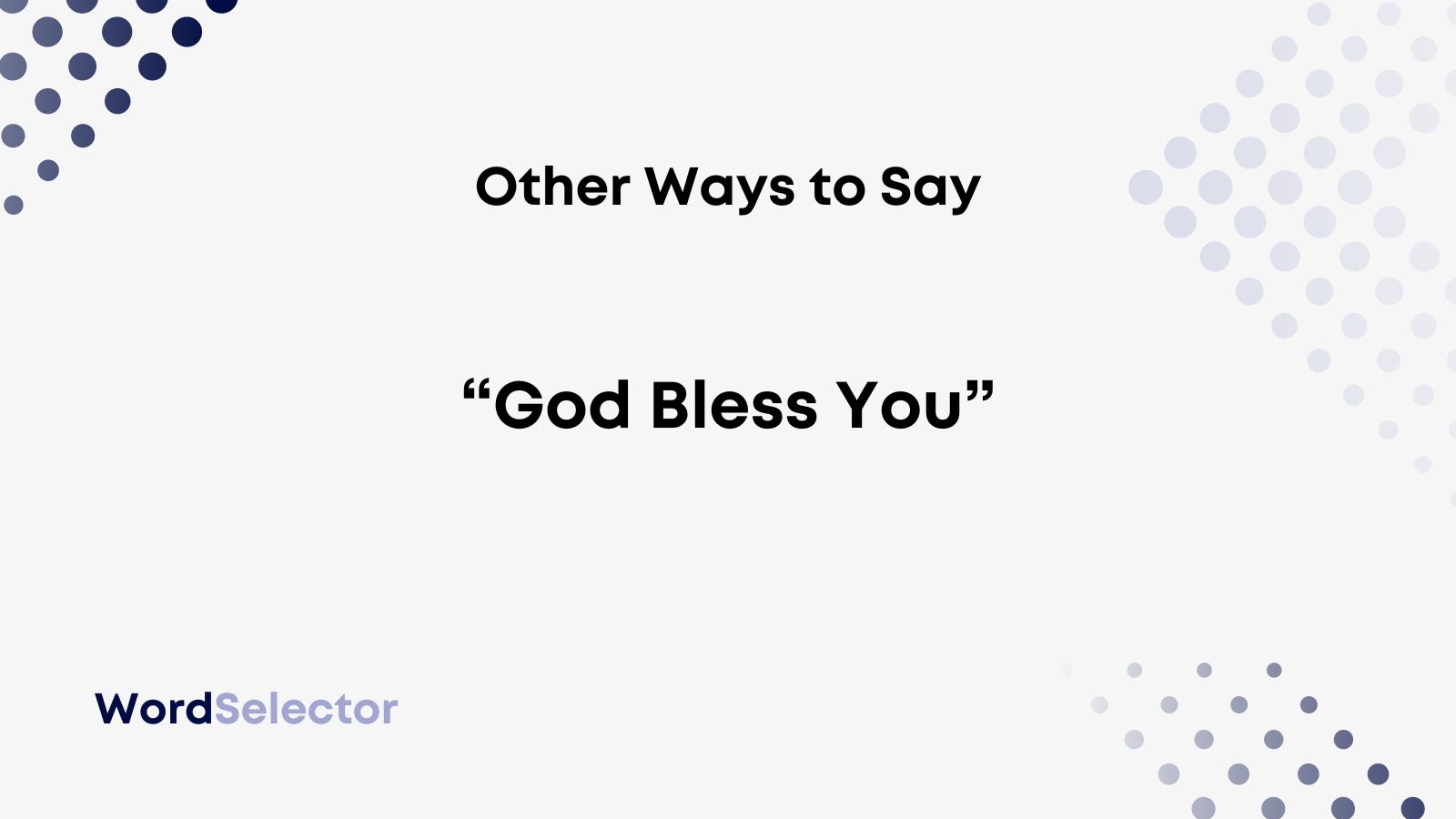Has someone done something to help you without you asking? Maybe you’re looking for a way to thank them that’s better than the generic “thank you.”
“God bless you” works, but is it appropriate to say?
Don’t worry! This article will explain all you need to know about different ways to say “god bless you.”
Other Ways to Say “God Bless You”
- I don’t know how I can repay you
- I truly owe you one
- You have done me such a kindness
- Thank you so much
- Thanks a heap
- You don’t know what this means to me
- You’re too good to me
- I can’t believe how much you’ve helped
- You didn’t have to do this
- You’ve made me so happy
- I really appreciate all your help
- You’ve gone above and beyond for me
KEY TAKEAWAYS
- “God bless you” is correct, but you should avoid using it when speaking to non-religious people.
- In formal situations, you should say “I don’t know how I can repay you.”
- You could try “I truly owe you one” if you want a more informal and conversational phrase.
There are some great alternatives for “god bless you” when someone has helped you. Keep reading to learn more about the most effective ones.
Feel free to skip to the final section if you’re only here to find out whether “god bless you” is formal and correct. We’ve included a small part about that!
You may also be looking for this article: 10 Other Ways to Say “Bless You” When Someone Sneezes
I Don’t Know How I Can Repay You (Formal)
“I don’t know how I can repay you” is a great formal alternative for “God bless you.” It removes the religious connotation, making it effective regardless of the type of person you’re talking to.
You should try using this phrase in business emails to let somebody know they’ve done you a massive favor. It works best when emailing colleagues after they’ve given you some important information or help.
Generally, “I don’t know how I can repay you” will work better in formal contexts than “God bless you.” It’s much more common as a professional alternative, making it more suitable for almost every type of email you send.
Be careful, though. Since you’re referring to someone “repaying” you, they may decide to take you up on that offer someday. Be sure you can repay them if you need to!
Check out this example to help you with it:
Dear Roger,
I don’t know how I can repay you. Thanks to your commitment, we can now get our books done in half the time.
All the best,
Suzie
I Really Owe You One (Informal)
“I really owe you one” is an excellent informal synonym giving you another way to say “God bless you.” There is no mention of “God” or blessings here, making it a non-religious alternative.
It’s very conversational, which is why it works so well in most informal situations. It is mainly used in speaking rather than writing. However, it works well in both contexts.
For example, you might want to say “I really owe you one” when speaking with a colleague who helped you out of a tricky situation with your boss. It suggests they’ve done you a great favor and you are incredibly thankful to them.
We don’t encourage using “I really owe you one” over “God bless you” formally, though. While neither phrase is great in a formal email, “God bless you” is slightly more professional.
These examples will show you more about it:
Alright, I really owe you one. You have helped me understand more about this.
I really owe you one, Daniel. You have no idea how much it means that you were able to help.
Is It Correct to Say “God Bless You”?
“God bless you” is a grammatically correct way to say thank you. However, it is inappropriate in most cases when speaking with non-religious people.
God’s blessings are irrelevant to most. You should not pass them on to people who don’t care because your words won’t have any merit.
You may also come across a variation such as:
- May God bless you
Here, you can add “may” to the beginning of the phrase to show that God may choose to bless you. It’s a very subtle difference.
With all that said, “God bless you” is appropriate for religious speakers. If you are using it in a religious context (i.e., within a church), then there’s no reason not to use it.
Feel free to bookmark this page and return again when you want to remind yourself about “God bless you.” It’s always good to know whether it’s acceptable.

